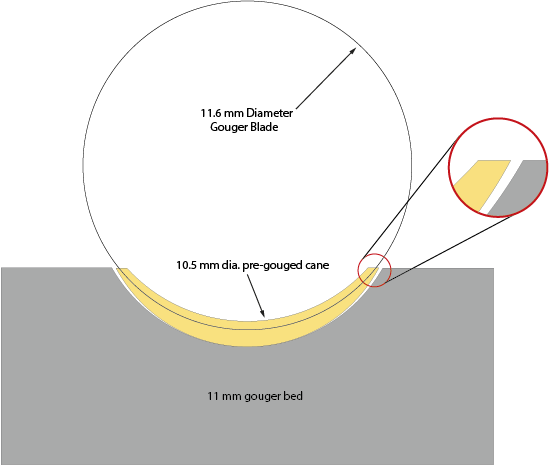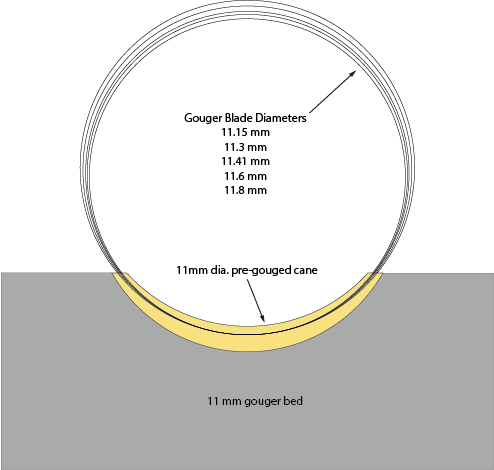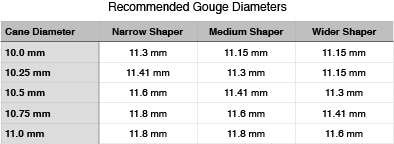Categories
Categories
Brands
Brands
- Home
- Cane Processing
- Gouging
Gouging
We at Capitol Cane feel you should have options in choosing what gouge works best for you. The optimum gouge is dependent on the diameter of the cane, the shape you use, your reed making style, and even altitude. It may even change based on the seasons. This is not to say that a "one gouge fits all" approach doesn't work. Most of us who own gougers work with a fixed bed size and a gouger blade of fixed (and often unknown) geometry and we successfully make playable reeds. We make it work by adjusting the scrape to the situation. We are always "chasing" the variables.
The more you can control the variables, the more consistent your reed making will be. Your finished reed success rate goes up and you may even spend less time scraping, and more time playing. Let’s examine some of the important variables.
Cane Diameter and Gouger Bed
In a perfect world, we should only gouge cane that matches the diameter of our gouger bed. So, if we have an 11.0 mm gouger bed, we should choose 11.0 mm or 10.75 mm diameter cane for best results. Anything smaller and the results can become unpredictable (see diagram of 10.5 mm cane on an 11.0 mm bed). Our premium gouged cane is matched to the gouger bed.

Gouge Options
We use Reeds ’n Stuff gougers for all of our premium products. The Reeds ’n Stuff gouger uses a cylindrical blade with several choices of gouge diameter. This allows us to offer you a choice of gouges to best fit your needs.

General Rules of Thumb
• The larger the cane diameter, the larger the gouge diameter / The smaller the cane diameter, the smaller the gouge diameter.
• The wider the shape, the smaller the gouge diameter / The narrower the shape, the wider the gouge diameter.

 Loading... Please wait...
Loading... Please wait... 